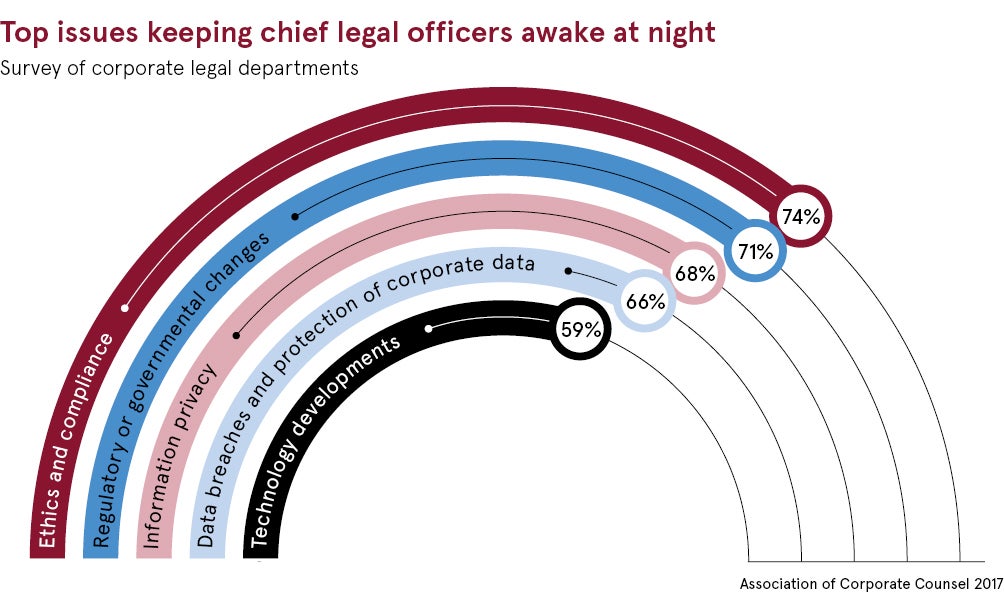Technological innovation has a notorious tendency to outpace the law. This means the in-house lawyer in the biggest tech companies must anticipate legislative and regulatory changes while performing their broad legal functions.
With the likes of Google, Uber and IBM dominating the technology innovation market, the in-house technology lawyer’s role in the big companies is unique. Though they have the legal expertise, a sound understanding of the products being developed and how the business wants to exploit them, they can’t do it all.
Lawyering the next ‘big thing’ requires a lawyer to be comfortable with uncertainty
Suzanne Townley, solicitor at Pannone Corporate, says: “Those in general counsel roles often have a broad remit of responsibilities and don’t have time to dig deep into the relevant law and all its implications.”
Specialist technology lawyers are there to support your in-house legal team
Here’s where external specialist technology lawyers step up to the vital role of supporting the in-house legal function at tech innovation companies. Emma Jelley, legal adviser at Fondia, headed up Google’s legal affairs in the UK and Ireland for a decade until 2016. She firmly believes in-house lawyers will have a business leadership role and “not get into the weeds” if they have the resources to hire or outsource to get the technical legal work done.
Alex Cravero, solicitor at Herbert Smith Freehills, says: “With regulatory change often necessitating technical development, it is a practical reality that lawyers must be involved from the outset of a project to ensure its compliance with matters legal, ethical and regulatory.”
Ironically, legal practice itself is being disrupted by technological innovation, but there are practical solutions for technology lawyers supporting the tech innovators. Herbert Smith Freehills is hiring technologists and data scientists, and using cutting-edge IT tools, so it can best serve the needs of in-house lawyers, such as the Australian National Blockchain, which Mr Cravero is heavily plugging into in the UK.
Google uses the concept of a product counsel, who partners closely with a product manager from early in the product development process, to give a legal steer. Mrs Jelley explains: “Later, commercial counsel will be brought in for contract drafting. The teamwork between product and commercial counsel needs to be seamless and, depending on the product, the split may not be worth making at all.”
Either way, she says a product launch is likely to be painless from a legal perspective, if the product manager trusts and respects the lawyer they are partnering with, and the same project management software is used.
Technology lawyers can help plan for uncertainty
A particular challenge is navigating legal and regulatory uncertainty around new tech innovations. “Lawyering the next ‘big thing’ requires a lawyer to be comfortable with uncertainty,” says Mrs Jelley. “When lawyering a product development team through legal uncertainty, don’t let that uncertainty paralyse you. Take what you know, based on the data you have, and form a risk-based recommendation for moving ahead.”
Mr Cravero says anticipating such changes with the maximum possible lead time is vitally important for mitigating risk and identifying business opportunities. But how? “Horizon scanning,” he explains. “Implementing systematic processes for gathering, analysing and disseminating information relating to possible legal, regulatory and technological developments helps lawyers identify emerging issues and support organisational decision-making.”
He says technology lawyers in private practice are particularly well placed to support in-house counsel with balancing the pressures of business demands around technological innovation with risk and compliance. Fortunately, businesses usually have some notice of impending legal and regulatory changes, though Mrs Townley warns businesses not to bury their heads in the sand.

Ethical considerations must be top priority for tech law
Supporting the development of new tech innovations can also trigger ethical considerations depending on the technology, use-case and industry. Mr Cravero cites artificial intelligence (AI) as a good example: “Companies developing AI need to consider their products in the context of ethical issues around employment and equality arising from AI’s near-boundless landscape.”
Lawyers must ensure their organisation’s ambitions don’t overstep fundamental ethical, legal and regulatory boundaries, a particular challenge in the context of data. He says lawyers in companies operating blockchain platforms, for instance, must balance the benefits of immutability against legally enshrined data privacy rights, such as the right to be forgotten or the right to rectification.
There’s also the need for humanity. As Mrs Jelley says: “Lawyers can and should bravely bring their whole humanity to a decision-making table. If you evaluate that something is legal, but it makes you react badly as a human being, say so honestly and thrash it out with your colleagues openly. It may be that the product is best limited to a sandbox or beta phase for testing, until such time as society is ready for it.”
Technology lawyers must be brought in early in the process
The early involvement of technology lawyers in the development process is vital. While historically clients tended to come to them with a finished product, sometimes leading to wasted expenditure if further development was needed, or amendments to meet legal requirements, Mrs Townley says: “Clients are involving us earlier, enabling them to design the product or service from the outset with data protection and privacy considerations in mind, and to meet the requirements of the General Data Protection Regulation.”
However, she warns that within the business, seeking support or approval from “legal” may be viewed as a hurdle to be overcome, rather than an important part of the development process. There is a balance to be struck. Mrs Jelley points out: “The legal input does have to be positive, creative and enabling.”
What’s clear is that the advice of external technology lawyers, who are practical, business-minded, able to cope with legal uncertainty and engender the respect of innovative product developers, will be sought out by the big tech firms.
Specialist technology lawyers are there to support your in-house legal team
Technology lawyers can help plan for uncertainty

